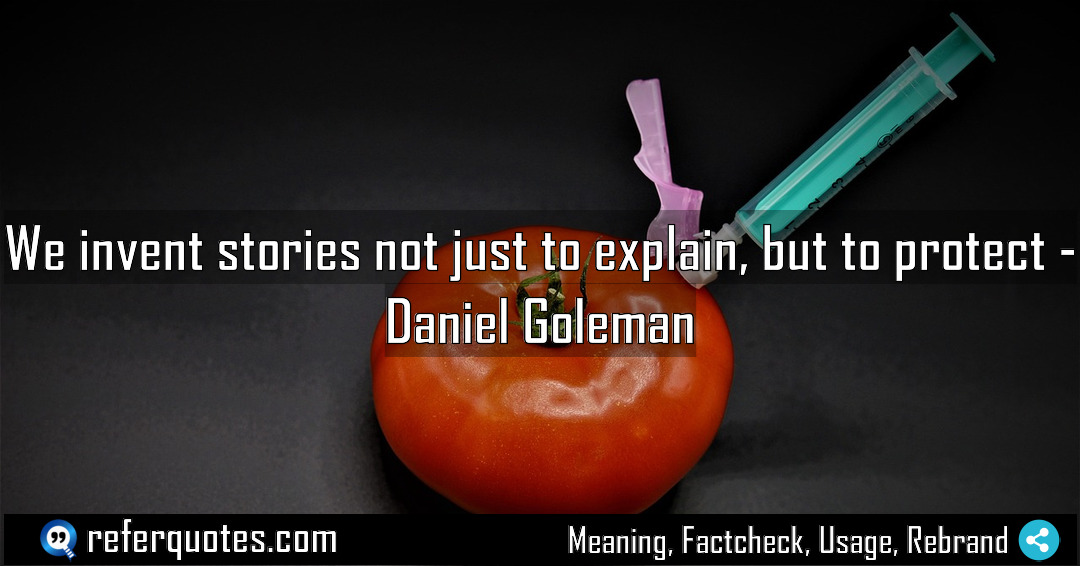We invent stories not just to explain… it’s a profound truth about self-deception. This isn’t just about lying to others; it’s the lies we tell ourselves to get through the day. Goleman hits on a fundamental, almost uncomfortable, aspect of human psychology.
Share Image Quote:Table of Contents
Meaning
The core message here is that our personal narratives are defense mechanisms. We don’t just use stories to make sense of a confusing world; we actively use them as a shield to protect our ego from painful truths.
Explanation
Okay, so let’s break this down. Think about it. When you get critical feedback, your first instinct might be to craft a story: “My boss is just having a bad day,” or “They don’t understand the full context.” That story? It’s not really about explaining the situation accurately. It’s about protecting you from the sting of realizing you might have dropped the ball. It’s a psychological cushion. Our minds are masterful at constructing these fictions to avoid anxiety, to maintain a cohesive sense of self, even when that self is built on a few, well, vital lies. It’s a survival tactic, really.
Quote Summary
| Context | Attributes |
|---|---|
| Original Language | English (3668) |
| Category | Emotion (177) |
| Topics | belief (103), protection (2), story (19) |
| Literary Style | poetic (635) |
| Emotion / Mood | general (55), understanding (17) |
| Overall Quote Score | 80 (256) |
Origin & Factcheck
This quote comes straight from Daniel Goleman’s 1985 book, Vital Lies, Simple Truths: The Psychology of Self-Deception, published in the United States. You sometimes see similar ideas floating around misattributed to other psychologists, but this specific phrasing and the deep dive into the mechanics of it are Goleman’s work, before he became famous for Emotional Intelligence.
Attribution Summary
| Context | Attributes |
|---|---|
| Author | Daniel Goleman (125) |
| Source Type | Book (4032) |
| Source/Book Name | Vital Lies, Simple Truths: The Psychology of Self-Deception (61) |
| Origin Timeperiod | Modern (530) |
| Original Language | English (3668) |
| Authenticity | Verified (4032) |
Author Bio
Daniel Goleman is a psychologist and bestselling author whose journalism at The New York Times brought brain and behavior science to a wide audience. He earned a BA from Amherst and a PhD in psychology from Harvard, and studied in India on a Harvard fellowship. Goleman’s research and writing helped mainstream emotional intelligence, leadership competencies, attention, and contemplative science. He co-founded CASEL and a leading research consortium on EI at work. The Daniel Goleman book list includes Emotional Intelligence, Working with Emotional Intelligence, Primal Leadership, Social Intelligence, Focus, and Altered Traits.
| Official Website
Where is this quotation located?
| Quotation | We invent stories not just to explain, but to protect |
| Book Details | Publication Year: 1985; ISBN: 9780743240156; Last edition: 1996 Harper Perennial; Number of pages: 288. |
| Where is it? | Approximate page from 1996 edition, Chapter 3: The Uses of Illusion |
